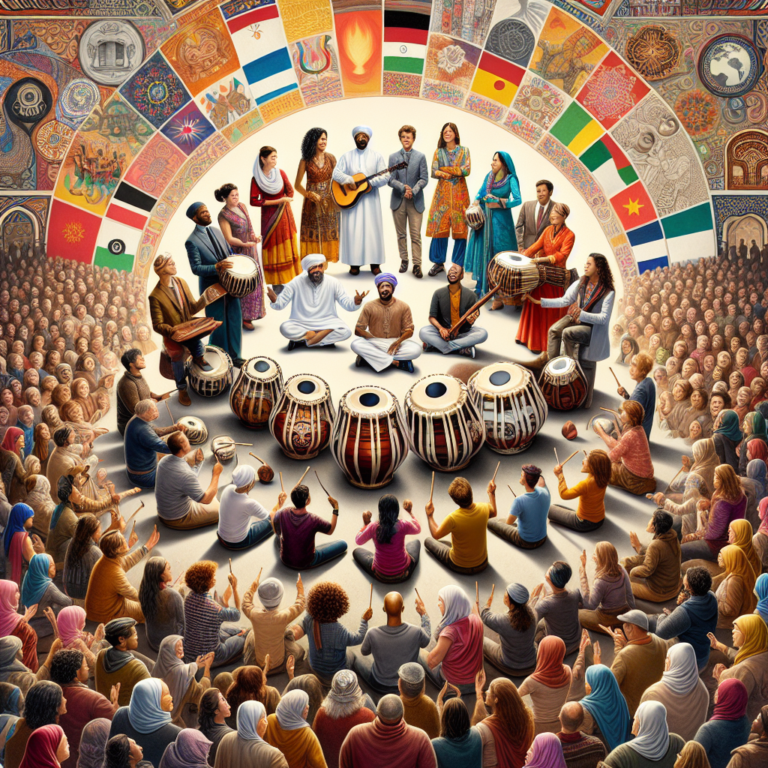The tabla, a unique and versatile percussion instrument, has played a significant role in bridging cultures and connecting communities around the world. Originating in the Indian subcontinent, the tabla has a rich history and tradition that dates back many centuries. Its distinctive sound and rhythmic patterns have captivated audiences and musicians alike, transcending boundaries of language, nationality, and ethnicity.
One of the most remarkable aspects of the tabla is its ability to bring people together from diverse backgrounds. Whether through live performances, collaborations, or workshops, the tabla has the power to create a sense of unity and harmony among people of all ages and walks of life. Its rhythmic beats and melodic tones have a universal appeal that resonates with listeners across different cultures and traditions.
In recent years, the tabla has gained popularity in Western music circles, with many prominent artists incorporating its sounds into their compositions. This fusion of Eastern and Western musical styles has paved the way for cross-cultural collaborations and cultural exchange, allowing artists to explore new creative possibilities and expand their artistic horizons.
Additionally, the tabla has become an important tool for cultural education and outreach programs, as it provides a unique opportunity for individuals to learn about the rich heritage and traditions of India and other South Asian countries. By participating in tabla workshops and classes, people can gain a deeper understanding and appreciation of Indian music and culture, while also fostering greater cultural awareness and understanding.
Furthermore, the tabla has been instrumental in promoting diversity and inclusivity within communities. Through its music, people of different backgrounds can come together to celebrate their shared love for music and rhythm, breaking down barriers and fostering a sense of belonging and cooperation. In a world that is often divided by misunderstandings and prejudices, the tabla serves as a powerful symbol of unity and diversity, reminding us of the beauty and strength that comes from embracing our differences.
In conclusion, the tabla’s role in bridging cultures and connecting communities is a testament to the power of music as a universal language that transcends boundaries and unites people from all walks of life. By celebrating diversity and promoting cultural exchange through the sound of the tabla, we can foster greater understanding, respect, and appreciation for the rich tapestry of human experience. Let us continue to cherish and uphold the values of unity, diversity, and inclusion, as we come together to create a more harmonious and interconnected world.

